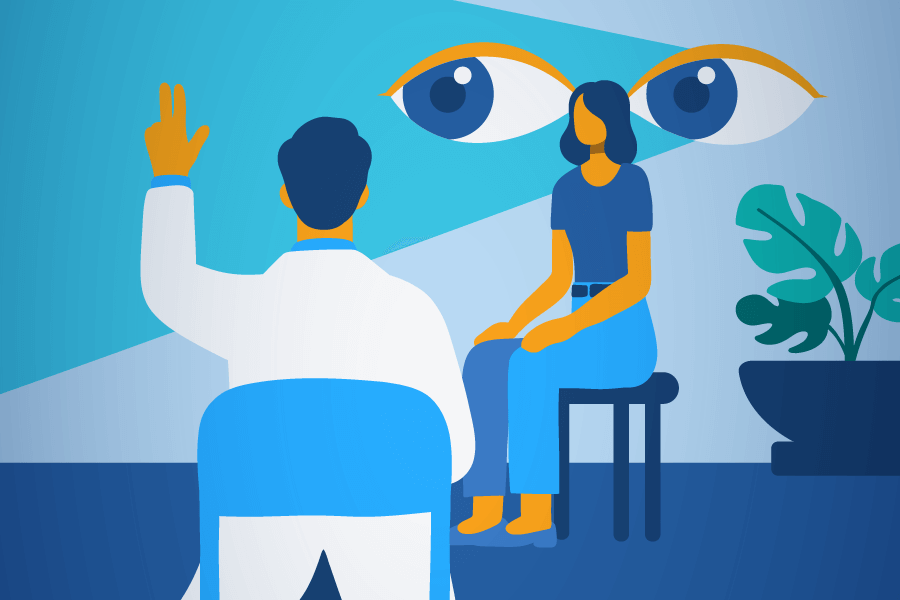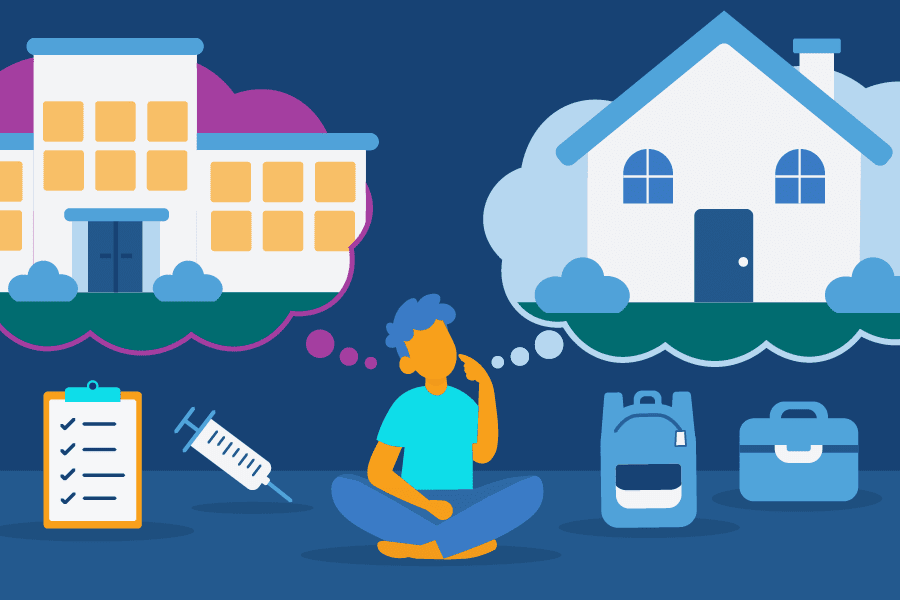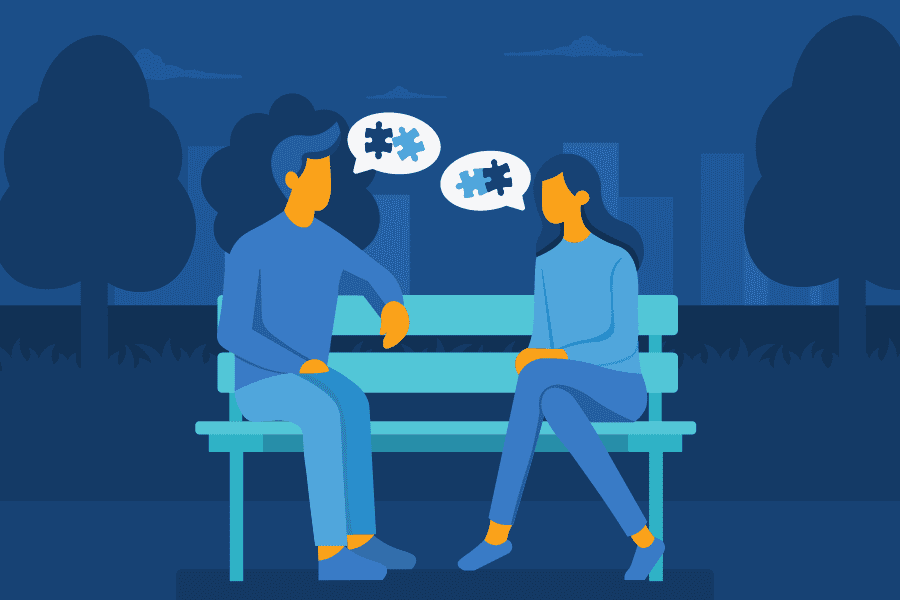Teen Addiction Treatment Overview
There are so many different programs out there from hospitals to hiking trips, residential to outpatient or some combination of them all. Helping your troubled teen is not a one-size-fits-all situation and every program has its pros and cons. Let’s take a look at some of the different types of programs and what they offer.
Wilderness Therapy Programs
Wilderness therapy involves teens spending 1–3 contiguous months in a backcountry setting. During their stay in wilderness, teens learn survival and camping skills, get lots of physical activity, and can do deep therapeutic work.
Wilderness therapy can be a life-changing intervention for those who can afford it. Be prepared to seek out “aftercare”, as it is often called, which can be any of the following treatment options.

Benefits of a Wilderness Program
- Teens are removed from the environment that triggered their behaviors and can take a “time-out” free from the pressures of home and the constant presence of technology.
- Teens are under 24/7 supervision, so it is a good option for adolescents struggling with cutting or suicidal ideation.
- The combination of being outside, getting physical exercise every day and daily self-discovery through therapeutic interventions empowers teens. Most people graduate from wilderness therapy programs saying that they feel better about themselves than they ever have before.
Downsides to a Wilderness Program
- While wilderness is said to be a therapeutic pressure cooker, it is most effective when followed up with some form of continuing care. Teens coming back from their wilderness experience need guidance to adapt their new selves back into the fast-paced world or many of their old patterns will return.
- Wilderness programs are expensive and, currently, insurance offers little help in paying for this form of treatment.
- Another aspect of wilderness is that it removes the struggling teen from the family dynamic. This can be a relief and give both the parents and the teen a chance to do some work on themselves before stepping back into the arena of the relationship. On the flip side, there is probably still work to be done on family relationships when your teen gets back.
Psychiatric Treatment Programs (Hospitalization)
This is generally in a hospital setting and is a short-term solution when you believe that your child’s life is in danger because of a mental health crisis. According to a study in the Journal of The American Academy of Pediatrics, depression, bipolar disorder, and psychosis are the most common conditions associated with hospitalization. Patients are typically released within a week or less.

Benefits of Psychiatric Treatment
- 24/7 supervision in a lockdown unit with no access to sharp objects. This eliminates potential harm to themself or others.
- Surrounded my trained medical professionals who can provide the proper treatment necessary, whether that means temporary medication or therapy.
- The center will provide therapy and recommendations on further treatment.
Downsides to Psychiatric Treatment
- The teen is removed from normal life and the comfort of their own home. This may cause a heightened reaction or feelings that they don’t belong.
- Missing school and other activities during their short hospitalization. However, further treatment may provide academic programing.
- Generally, very little therapeutic growth happens in this short time period, so it is highly recommended to follow hospitalization up immediately with another form of care.
Therapeutic Boarding School
Troubled teens who struggle with various mood disorders,psychological issues, and substance abuse issues can benefit from a therapeutic boarding school. These schools help to get academics back on track alongside therapeutic treatment.
This can be a good option for a teen who has gotten behind in school due to their behaviors or a stay in a wilderness therapy program. The typical stay at therapeutic boarding school is between 6 months and 2 years.
There are many different therapeutic boarding schools around the country and each one offers a slightly different experience and focus. Some are co-ed, and many are gender-specific and may even specialize on a single issue, such as eating disorders for teenage girls.
Sending your teen to a therapeutic boarding school removes them from the family dynamic, which has pros and cons in itself. If you can afford it and think that your relationship would benefit from some distance, this can be a great treatment option.

Benefits of Therapeutic Boarding School
- Higher levels of supervision than regular boarding school including 24/7 care and therapeutic treatment in a structured environment.
- Therapeutic activities such as equine therapy, outdoor adventures and counseling to complement the academics.
- A wide variety of therapeutic boarding schools exist around the country and each one offers a slightly different experience and focus.
Downsides of Therapeutic Boarding School
- Therapeutic boarding schools are generally quite expensive.
- Distance from your teen for extended periods of time.
Residential Treatment Center
The focus at a residential treatment center (RCT) is on behavior and safety. During residential treatment a person lives on-site and receives around-the-clock care. This option can range from a full lockdown facility to a sober living house, where clients can come and go at certain times.
RTCs are a good option for maintaining tight supervision and can be more affordable than a boarding school. RTCs can provide supervision and support for your teen when living at home is not an option for them anymore.

Benefits of a Residential Treatment Center
- RTCs are a good option for maintaining tight supervision and remove the teen from stressors or temptations.
- For someone who is a danger to self or others due to suicidal or homicidal ideation, or whose substance use has escalated to a point of imminently endangering their life, it may be necessary to have 24-7 supervision and/or round-the-clock medical care.
- Withdrawal from certain substances on which a person has become physically dependent can be very dangerous. It may be necessary to medically supervised withdrawal from these substances.
- If a person frequently requires hospitalization, inpatient care can provide a more consistent, longer-term environment in which to stabilize.
- More affordable than a boarding school.
Downsides of a Residential Treatment Center
- Families often do not realize that these programs are only the beginning of the road and must be followed up with supportive care such as outpatient programs.
- People often appear more high-functioning in the context of an inpatient program in which they have learned the culture and expectations and are not faced with the challenges of the outside world. It is important to expect that they will struggle with the transition out of programs like this.
- Many inpatient treatment programs are expensive and are only partially covered by insurance or not covered at all.
Outpatient Treatment Programs
Outpatient programs for teens offer a comprehensive program without removing teens from their homes. Good programs will support the whole family, so that parents learn how to support their teens in a way which aligns with the treatment they are receiving.
Outpatient programs have the benefit of being able to offer care that fits around school, making it less disruptive. Most teens will gradually decrease the number of hours per week spent in outpatient treatment, allowing for a gradual reduction of care as they stabilize. Outpatient programs can be a sensible next step after one of the residential options listed above.

Benefits of Outpatient Treatment Programs
- Teens are able to stay living in their own home.
- Support for the whole family so that parents align with teens.
- Less disruptive to school, a program can be created around the school schedule.
Downfalls of Outpatient Treatment Programs
- Outpatient programs do not provide containment and supervision, as the teens have to show up in order to receive support.
Transitional Living
Transitional living is an option for teens who cannot live at home to get support. These programs are designed to help homeless youth with a place to stay and life-skills support at no cost to them. Most programs can provide psychological and substance use evaluations and support. Transitional living is an amazing option for teens with limited to no options.
While transitional living programs offer remarkable services to those in the greatest need, they should be seen as a last resort. Like homeless shelters, they are doing their best to support as many people as possible on limited resources. For teens who are able to work with their families even a little bit, other options will be able to provide more in-depth care.

Benefits of Transitional Living
- No cost.
- A safe place to stay for homeless teens.
- Psychological and substance use evaluations and support.
Downfalls of Transitional Living
- Transitional living homes are meant to be a last resort option. Teens in compromised living situations may be turned away for those that do not have a home at all.
Counseling
Almost everyone could benefit from a good counselor or therapist. For struggling teens, it can be hard to find someone they trust. Finding the right person can make all the difference, so expect to try out a few options before settling for a counselor.
Counseling is generally only one session a week, or even less, so it does not provide enough support for high acuity needs. A therapist can complement other programs, provide support and assessment in the early stages of a teen’s struggles, or as a long-term follow up to an intensive program. Some counselors accept insurance, while others work only with private-pay clients.

How to Choose the Right Option
There are options for supporting troubled teens and many families use a combination of the options listed above. When parents are in the middle of trying to make a decision about what is best for their child, it can be stressful and overwhelming.
At Sandstone Care, our goal is to provide excellent support for teens struggling with mental health and substance abuse issues. We are happy to answer any questions and provide you with several treatment options if we are not the right fit for you.




